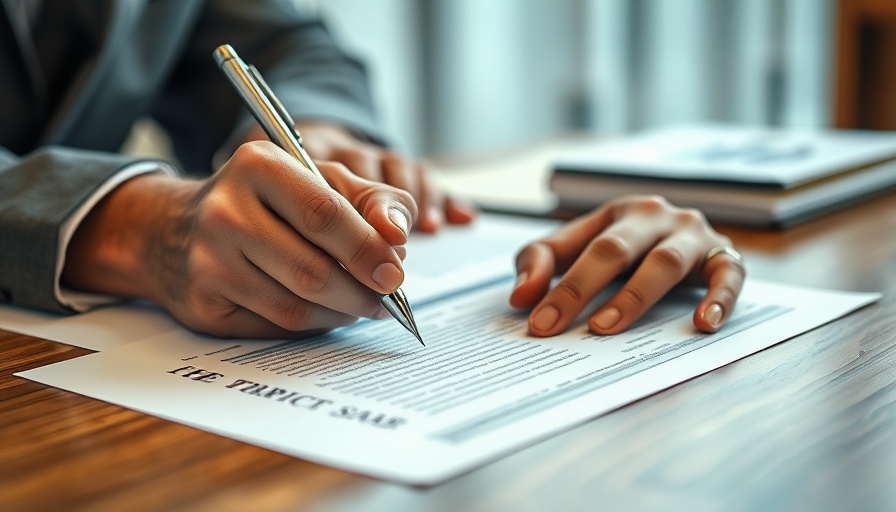
A Comprehensive Guide to Closing Documents: Why They Matter
In the intricate world of real estate, knowledge is power. For anyone selling their home—be it a house, condo, or investment property—understanding the necessary closing documents is essential to ensuring a smooth transaction. A seller must navigate critical paperwork that formalizes the sale, protects against future legal disputes, and verifies compliance with state regulations. Recognizing the significance of these documents in advance not only facilitates a seamless closing process but also empowers sellers to take control of their sale.
Key Documents Sellers Need Before and During Closing
The closing process may seem daunting, but being prepared with the right documents can ease much of the anxiety. Before the big day, sellers should make sure to gather essential paperwork.
- Signed Purchase Agreement: This document outlines the specific terms, conditions, and agreed-upon price of the sale. It's the foundation of the transaction and should be reviewed thoroughly.
- Property Disclosures: Required by law in many states, these disclosures inform the buyer about any known issues or defects with the property, fostering transparency and trust.
- Transfer Tax Declarations: This form calculates taxes owed on the property transfer and must be properly filed to comply with local regulations.
- Renovation Receipts: Showing proof of licensed work from renovations or repairs can reassure buyers of the property's value and condition.
- Homeowner Association Documents: If the property is part of an HOA, sharing the rules and compliance status is necessary to inform potential buyers.
The Role of Real Estate Agents and Attorneys
Having a knowledgeable real estate agent or attorney on your side can make a significant difference in navigating the paperwork. Agents can guide sellers through the complexities of local real estate markets, ensuring they have the right forms and that everything is processed in accordance with local laws. Furthermore, a real estate attorney can help mitigate risks associated with property transfers and provide valuable insights regarding any legal liabilities.
Understanding the Closing Day Documents
As the seller, closing day involves signing crucial documents that legally transfer ownership. These typically include:
- Closing Disclosure: This statement details the final loan terms and closing costs, helping sellers understand their financial responsibilities.
- Deed: This document officially transfers ownership of the property from the seller to the buyer, a vital step in the closing process.
- Bill of Sale: This outlines the personal property included in the sale, such as appliances or fixtures, ensuring all parties are clear about what is being transferred.
Investing in Knowledge: The Future of Real Estate Transactions
As the real estate market continues to evolve, harnessing technology and understanding new trends will become increasingly important. Online platforms like Zillow and Redfin simplify the process of searching for homes or finding rental properties, but they also highlight the need for complete understanding of legalities in selling. By familiarizing themselves with key documents and staying informed about real estate trends, sellers can cultivate a better selling experience.
Final Thoughts: The Value of Preparation
Getting ready to sell your property is a major undertaking, but being educated about the required closing documents is crucial to easing the process. By approaching this responsibility with knowledge and confidence, you can avoid pitfalls that could lead to delays or complications. So, as you prepare to close on your home, remember: each piece of paperwork serves a purpose that protects your interests and ensures a successful transaction.
 Add Row
Add Row  Add
Add 




Write A Comment